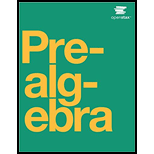I 3. A 10 metre long path consists of 20 square 1 metre by 1 metre flagstones laid in a 2 × 10 rectangular grid. You stand on the left hand flagstone at one end of the path and move among the flagstones making up the path randomly in discrete time steps. At each time step you pick a flagstone which shares an edge with the one you are standing on (so your move may be left, right, forward or back but not diagonal) uniformly at random and move on to it. (a) Describe a Markov chain which models this process. (b) Say why you chose to display the transition probabilities in the way you did in part (a)? (c) Using non-mathematical language, write down an example of a probability that could be calculated using first-step analysis. (d) Using non-mathematical language, write down an example of a random variable whose expectation could be calculated using first-step analysis.
I 3. A 10 metre long path consists of 20 square 1 metre by 1 metre flagstones laid in a 2 × 10 rectangular grid. You stand on the left hand flagstone at one end of the path and move among the flagstones making up the path randomly in discrete time steps. At each time step you pick a flagstone which shares an edge with the one you are standing on (so your move may be left, right, forward or back but not diagonal) uniformly at random and move on to it. (a) Describe a Markov chain which models this process. (b) Say why you chose to display the transition probabilities in the way you did in part (a)? (c) Using non-mathematical language, write down an example of a probability that could be calculated using first-step analysis. (d) Using non-mathematical language, write down an example of a random variable whose expectation could be calculated using first-step analysis.
Algebra & Trigonometry with Analytic Geometry
13th Edition
ISBN:9781133382119
Author:Swokowski
Publisher:Swokowski
Chapter3: Functions And Graphs
Section3.3: Lines
Problem 11E
Related questions
Question

Transcribed Image Text:I
3. A 10 metre long path consists of 20 square 1 metre by 1 metre flagstones laid in
a 2 × 10 rectangular grid. You stand on the left hand flagstone at one end of the
path and move among the flagstones making up the path randomly in discrete time
steps. At each time step you pick a flagstone which shares an edge with the one you
are standing on (so your move may be left, right, forward or back but not diagonal)
uniformly at random and move on to it.
(a) Describe a Markov chain which models this process.
(b)
Say why you chose to display the transition probabilities in the way you did in
part (a)?
(c) Using non-mathematical language, write down an example of a probability that
could be calculated using first-step analysis.
(d) Using non-mathematical language, write down an example of a random variable
whose expectation could be calculated using first-step analysis.
Expert Solution
This question has been solved!
Explore an expertly crafted, step-by-step solution for a thorough understanding of key concepts.
Step by step
Solved in 2 steps with 2 images

Recommended textbooks for you

Algebra & Trigonometry with Analytic Geometry
Algebra
ISBN:
9781133382119
Author:
Swokowski
Publisher:
Cengage

Trigonometry (MindTap Course List)
Trigonometry
ISBN:
9781337278461
Author:
Ron Larson
Publisher:
Cengage Learning


Algebra & Trigonometry with Analytic Geometry
Algebra
ISBN:
9781133382119
Author:
Swokowski
Publisher:
Cengage

Trigonometry (MindTap Course List)
Trigonometry
ISBN:
9781337278461
Author:
Ron Larson
Publisher:
Cengage Learning


Glencoe Algebra 1, Student Edition, 9780079039897…
Algebra
ISBN:
9780079039897
Author:
Carter
Publisher:
McGraw Hill


Holt Mcdougal Larson Pre-algebra: Student Edition…
Algebra
ISBN:
9780547587776
Author:
HOLT MCDOUGAL
Publisher:
HOLT MCDOUGAL